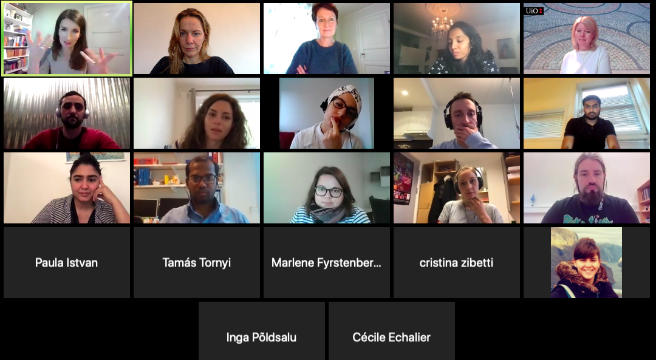“We were midway through the second recruitment period when Europe entered lockdown back in March. We are happy that young researchers consider Norway and the University of Oslo to be an attractive destination where they can conduct research as part of strong international research communities, despite the additional challenges currently involved” says Professor Hilde Nebb, Coordinator of the Scientia Fellows programme and Vice-Dean of Innovation and Internationalisation:
“The EU has shown great flexibility during the current situation, which gives us confidence that we will succeed in maintaining full progress in this large-scale mobility, research and innovation programme”
The University of Oslo’s largest EU project
Scientia Fellows is the largest EU project at the University of Oslo and has a total budget of nearly NOK 250 million. Thanks to the positive results from the initial period between 2014 and 2019, the EU decided to support the programme for another five-year period from 2019 to 2024. Approximately 100 researchers will conduct outstanding research and innovation, while also having the chance to attend courses to enhance their careers. During the initial round of the programme, more than 80 researchers from 33 countries were appointed.
“In the prevailing situation, it has become even more important to strengthen international research and innovation within the life sciences field. The global issues we are facing require international solutions, says Nebb.
“Scientia Fellows contributes to the best research and promotes internationalisation, within Norwegian research communities and in all of the countries from which the Scientia Fellows come. Now, we look forward to strengthening the research communities with even more top international researchers,” says Hilde Nebb.
Major ambitions for research and innovation
From the first announcement, 18 fellows were appointed and were due to start their research stays in 2020. Despite the restrictions resulting from the COVID-19 pandemic, the majority have been able to get started on their projects. There is a high threshold for making the cut, but the fellows say that it is more than worth the effort.
“I applied to be part of Scientia Fellows because it offered me the opportunity to shape my own projects within the fields I find interesting,” says Filipa Vaz, a Scientia Fellow who arrived in Oslo in January.
Her academic background is in microbiology, but she became fascinated by immunology during her doctoral project at Oxford. The possibility of participating in an interdisciplinary project was one of the determining factors in applying to Scientia Fellows.
“The research I do looks at how local immune responses trigger systemic immune responses. By researching knowledge about these mechanisms, we can develop better treatments, for instance for oral vaccines, autoimmune diseases and cancer. I can also see the potential for innovations in the project that could be commercialised. The postdoctoral fellows programme and the School of Health Innovation are therefore huge advantages of Scientia Fellows,” Vaz says.
Read more about Filipa Vaz’ research project and her experiences of Scientia Fellows here.
Career development provides more opportunities
Denis Reis de Assis carries out research on underlying pathological causes of mental disorders. He highlights the opportunity to immerse himself in his field of research as part of Scientia Fellows but also emphasises the focus on career development and transferable skills.
“I anticipate being able to participate in the submission of two articles to be hopefully published during the first half of 2021. I have also just completed a course in leadership and will have the opportunity to provide academic supervision to bachelor’s students in order to practice and strengthen my skills in management and academic supervision,” he says:
“I now have three years in which I intend to immerse myself in research and I also intend to develop my supervision and management skills. Though, I am not sure if I will keep working on research in academia or if I will end up moving to the private sector, or even launching my own business one day,” Reis de Assis concludes.
Read more about Denis Reis de Assis’ research project and experiences of Scientia Fellows here.
Read about Scientia Fellows Vandana Ravindran here
About Scientia Fellows
Scientia Fellows 2019-2024
- Scientia Fellows is the largest EU project at the University of Oslo, with a budget of NOK 250 million.
- The programme will recruit 250 research FTEs. That means around 100 experienced researchers will be employed for two or three-year tenures.
- As a mobility programme, most of the researchers hail from abroad and therefore bring top international expertise to the University of Oslo’s research within health and life sciences.
- The first announcement was published in 2019 and 18 researchers were appointed. Due to the COVID-19 pandemic, the second announcement was split into two and 26 candidates were offered tenures in August 2020.
- The third announcement, for the final 30-35 positions, will be published in February 2021.
Scientia Fellows I 2014-2019
Scientia Fellows I had a budget of NOK 180 million. More than 80 experienced researchers from 33 different countries were appointed with two to three-year tenures within health and life sciences.
